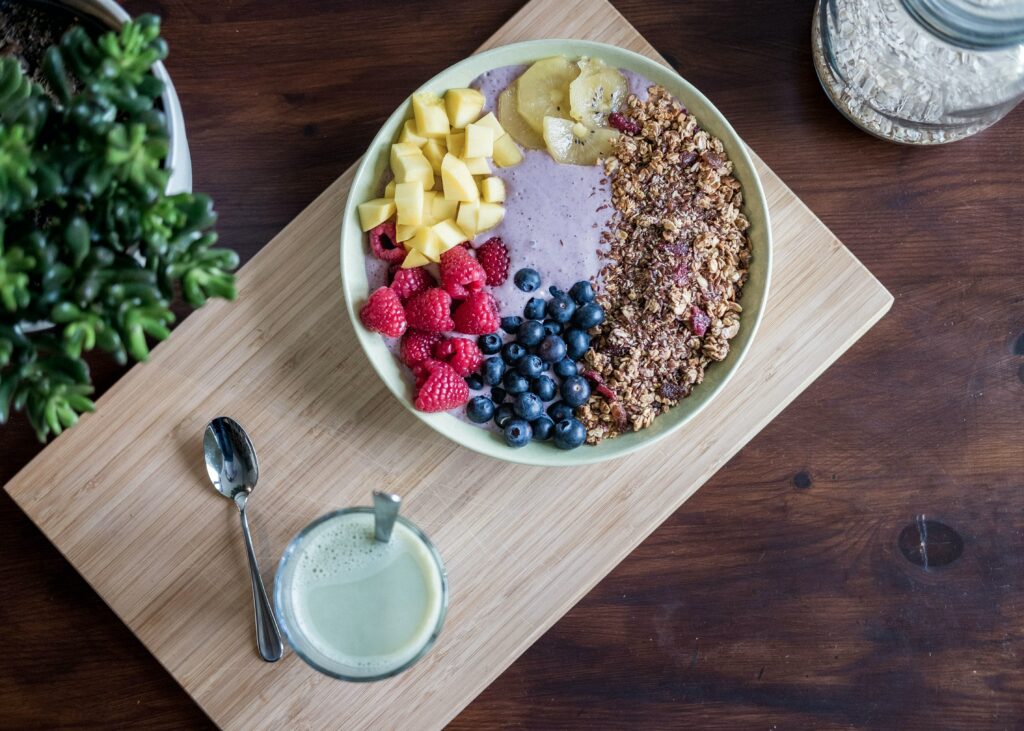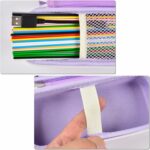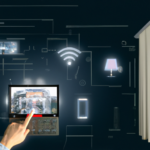In this article, we will explore how smart devices are transforming the lives of elderly individuals. From wearable technology to smart home automation, these innovative gadgets are revolutionizing elderly care and striving to improve the quality of life for older adults. With features like health monitoring, medication reminders, and emergency assistance, these devices are providing greater independence and peace of mind for both the elderly and their loved ones. Let’s discover how smart devices are reshaping the way we care for our aging population.

Benefits of Smart Devices in Elderly Care
As technology continues to advance, smart devices have become increasingly integrated into various aspects of our lives. One area where these devices are making a significant impact is in elderly care. Smart devices offer a range of benefits that can improve the quality of life and overall well-being of the elderly. From enhanced communication to increased independence, here are some of the key advantages of using smart devices in elderly care.
Improved communication
One of the most significant benefits of smart devices in elderly care is improved communication. Older adults can now stay connected with their loved ones more easily than ever before. With the advent of video calling, messaging, and email on smart devices, you can have face-to-face conversations and keep in touch with family and friends from the comfort of your own home. These tools also allow for quick and convenient communication with healthcare professionals, eliminating the need for frequent in-person visits.
Enhanced safety and security
Safety and security are of paramount importance in elderly care. Smart devices offer a range of features that can significantly enhance safety and security measures. For instance, smart security systems enable the monitoring and remote control of your home’s security cameras, door locks, and alarms. Fall detection devices can detect falls and automatically notify caregivers or emergency services. Medication reminders ensure that you never miss a dose of your medication, promoting better health outcomes. Emergency response systems provide a quick and efficient way to call for help in case of medical emergencies.
Health monitoring and management
Smart devices have revolutionized health monitoring and management in elderly care. Smartwatches and fitness trackers can monitor your heart rate, sleep patterns, and daily physical activity, providing valuable insights into your overall health and well-being. Smart pill dispensers can help you manage your medications by automatically dispensing the correct dosage at the right time. Telehealth and remote monitoring allow healthcare professionals to remotely monitor your health conditions and provide timely interventions when needed. Vital sign monitoring devices enable you to keep track of your blood pressure, glucose levels, and other vital signs from the comfort of your own home.
Assistance with daily activities
Smart devices can assist with various daily activities, making them more convenient and manageable for the elderly. Smart home automation allows you to control lights, thermostats, and other appliances with ease, eliminating the need for physical exertion. Voice-controlled devices, such as virtual assistants, enable you to perform various tasks hands-free, from playing music to setting reminders. Reminder and scheduling apps help you stay organized and manage your daily routines effectively. Smart kitchen appliances can simplify cooking and meal preparation, making it easier to maintain a healthy diet.
Increased independence
Perhaps one of the most significant benefits of smart devices in elderly care is the increased independence they offer. Smart mobility aids, such as stairlifts and mobility scooters, can help older adults navigate their homes and communities with ease, reducing the need for assistance. Personal emergency response systems provide a sense of security and peace of mind, allowing you to live independently while knowing that help is always just a button press away. Location tracking devices can help caregivers and family members keep track of your whereabouts, ensuring your safety while allowing you the freedom to explore and engage in activities you enjoy. Voice-controlled home assistants allow you to control various aspects of your environment and get answers to questions without relying on others.
Smart Devices for Communication
Communication plays a vital role in maintaining social connections and overall well-being. Smart devices offer a range of communication tools that can significantly enhance the ability of the elderly to stay connected with their loved ones and healthcare professionals.
Video calling
Video calling has become increasingly popular in recent years, and for a good reason. It allows you to have face-to-face conversations with your family and friends, no matter where they are located. This can greatly reduce feelings of isolation and loneliness and provide a sense of companionship. Video calling can also be used for virtual medical consultations, enabling you to receive healthcare advice and assistance from the comfort of your own home.
Messaging and email
Messaging and email have become ubiquitous forms of communication. With smart devices, you can easily send and receive messages and emails, keeping in touch with your loved ones and healthcare providers. This can be particularly useful for quick updates, sharing photos and videos, or discussing medical concerns.
Voice-controlled assistants
Virtual assistants, such as Amazon’s Alexa or Apple’s Siri, have become an integral part of many people’s lives. These voice-controlled assistants can perform a range of tasks, from playing music to providing weather updates. For the elderly, they can be a valuable tool for hands-free communication. You can make phone calls, send messages, or check your calendar simply by using voice commands.
Social media platforms
Social media platforms, such as Facebook and Instagram, allow you to connect with friends and family, share updates, and join communities of interest. Smart devices provide easy access to these platforms, enabling you to stay connected and engaged with the world around you. Social media can be an excellent tool for combating social isolation and staying mentally active.
Enhancing Safety and Security
Safety and security are essential considerations in elderly care. Smart devices offer a range of features that can significantly enhance safety measures and provide peace of mind for both the elderly and their caregivers.
Smart security systems
Smart security systems enable you to monitor and control various aspects of your home’s security with ease. You can install cameras that provide live video feeds, allowing you to keep an eye on your surroundings at all times. Door locks can be remotely controlled, allowing you to grant access to trusted individuals while keeping others out. Alarms can be programmed to notify you or your caregiver in case of a security breach.
Fall detection devices
Falls are a significant concern for the elderly, as they can lead to serious injuries and complications. Fall detection devices use advanced sensors to detect falls and automatically alert caregivers or emergency services. These devices can significantly reduce the response time in case of a fall, increasing the chances of receiving timely assistance.
Medication reminders
Medication non-adherence is a common problem among the elderly. Smart devices offer medication reminder systems that can help you manage your medications effectively. These systems can be programmed to dispense the correct dosage at the right time, ensuring that you never miss a dose. Some devices even provide voice prompts and visual reminders to further enhance medication adherence.
Emergency response systems
In case of a medical emergency, quick access to help is crucial. Emergency response systems allow you to call for assistance with the press of a button. These systems are often wearable devices that can be worn as a pendant or a wristband, ensuring that help is always within reach. Emergency response systems can notify caregivers or emergency services, providing immediate assistance when needed.
Health Monitoring and Management
Monitoring and managing health conditions is essential for maintaining overall well-being. Smart devices offer a range of tools that can significantly improve health monitoring and allow for early interventions when necessary.
Smartwatches and fitness trackers
Smartwatches and fitness trackers have become increasingly popular among individuals of all ages. These devices can monitor various health metrics, such as heart rate, sleep patterns, and physical activity levels. By providing real-time data and insights, smartwatches and fitness trackers enable you to make informed decisions about your health and adjust your lifestyle as necessary.
Smart pill dispensers
Medication management can be challenging, particularly for older adults with multiple prescriptions. Smart pill dispensers offer a solution to this problem. These devices can be programmed to dispense the correct medication at the right time, eliminating the risk of medication errors and missed doses. Some smart pill dispensers can also send notifications to caregivers or family members to ensure accountability and peace of mind.
Telehealth and remote monitoring
Telehealth and remote monitoring have gained significant traction in recent years, allowing healthcare professionals to remotely monitor their patients and provide timely interventions. Smart devices enable video consultations with healthcare providers, reducing the need for in-person visits. Remote monitoring devices, such as blood pressure monitors and glucose meters, can transmit real-time data to healthcare professionals, enabling them to track your health conditions closely.
Vital sign monitoring devices
For individuals with chronic health conditions, monitoring vital signs is crucial. Smart devices offer a range of tools that can help you monitor your blood pressure, blood glucose levels, and other vital signs from the comfort of your own home. These devices provide real-time data and can alert you or healthcare professionals in case of any abnormal readings, allowing for timely interventions.

Assistance with Daily Activities
Daily activities such as home management, meal preparation, and scheduling can become more challenging as we age. Smart devices offer various tools that can assist with these activities, making them more convenient and manageable.
Smart home automation
Smart home automation systems allow for the control of various aspects of your home, from lights and thermostats to home security systems. With voice commands or mobile apps, you can easily adjust the lighting, temperature, and other settings, ensuring a comfortable and safe living environment. Smart home automation can also save energy and reduce utility bills.
Voice-controlled devices
Voice-controlled devices, such as virtual assistants, have become increasingly popular due to their convenience and ease of use. These devices can perform a range of tasks, such as playing music, setting reminders, and answering questions, all through voice commands. By using voice-controlled devices, you can perform daily activities hands-free, reducing physical exertion and making tasks more accessible.
Reminder and scheduling apps
Keeping track of appointments, medications, and daily routines can be challenging, particularly for older adults with cognitive decline. Reminder and scheduling apps offer a solution to this problem. These apps can send notifications and reminders for important events, ensuring that you never miss an appointment or forget to take medication. Some apps even allow for shared calendars, enabling caregivers or family members to assist with managing your schedule.
Smart kitchen appliances
Meal preparation and cooking can become more challenging with age, particularly for individuals with limited mobility or dexterity. Smart kitchen appliances offer innovative solutions to enhance convenience and ease in the kitchen. For example, smart refrigerators can alert you when you are running low on groceries, while smart ovens can be programmed to cook meals automatically. These appliances can make meal preparation more manageable and enjoyable.
Promoting Independence
Maintaining independence is a significant concern for many older adults. Smart devices offer various tools that can promote independence while ensuring safety and support when needed.
Smart mobility aids
Mobility challenges can significantly impact independence. Smart mobility aids, such as stairlifts and mobility scooters, can help older adults navigate their homes and communities with ease. These devices provide a safe and efficient way to move around and reduce the risk of falls and injuries. Smart mobility aids can significantly enhance independence and allow you to continue engaging in activities you enjoy.
Personal emergency response systems
Personal emergency response systems offer a sense of security and peace of mind. These wearable devices can be worn as pendants or wristbands and allow for quick access to help in case of an emergency. With the press of a button, you can call for assistance, ensuring that help is always within reach. Personal emergency response systems enable you to live independently while knowing that help is just a button press away.
Location tracking devices
Location tracking devices can be beneficial for both the elderly and their caregivers. These devices allow caregivers or family members to keep track of your whereabouts, ensuring your safety while allowing you the freedom to explore and engage in activities independently. Location tracking devices can provide peace of mind for both you and your loved ones.
Voice-controlled home assistants
Voice-controlled home assistants, such as Amazon’s Alexa or Google Assistant, offer a range of features that can enhance independence. From controlling various aspects of your home, such as lights and thermostats, to answering questions and providing information, these devices can serve as a reliable companion throughout the day. Voice-controlled home assistants allow you to perform various tasks hands-free, reducing dependence on others and promoting independence.

Barriers and Challenges
While smart devices offer numerous benefits in elderly care, there are several barriers and challenges that need to be addressed to ensure broader adoption and accessibility.
Technological literacy
Technological literacy remains a significant barrier, particularly for older adults who may be less familiar with new technologies. Learning how to use smart devices and becoming comfortable with their features can be challenging for those who have limited experience with technology. Addressing this barrier requires user-friendly interface design and comprehensive training programs that cater to the unique needs and capabilities of older adults.
Affordability
The cost of smart devices can be a significant barrier, especially for older adults living on fixed incomes or lacking financial resources. Affordable options and subsidies are needed to ensure that smart devices are accessible to all individuals, regardless of their economic status. Government programs, insurance coverage, and collaborations between technology providers and healthcare organizations can help make smart devices more affordable for older adults.
Privacy concerns
Data privacy and security are critical considerations when using smart devices. Older adults may have concerns about the collection and use of their personal health information. Addressing these concerns requires robust data protection measures, transparent privacy policies, and informed consent practices. Striking the right balance between leveraging the benefits of smart devices and protecting privacy is essential.
Integration and interoperability
The interoperability of different smart devices and platforms can be a challenge. Older adults may have multiple smart devices, such as a smartwatch, fitness tracker, and home automation system, each with its own interface and features. Integrating these devices and ensuring seamless communication between them is crucial for a smooth user experience. Efforts are underway to establish standards and compatibility initiatives to address this challenge.
Overcoming Barriers
While there are barriers and challenges associated with the use of smart devices in elderly care, there are also strategies and initiatives in place to overcome these obstacles.
User-friendly interface design
Designing user-friendly interfaces that cater to the unique needs and capabilities of older adults is crucial. Simple and intuitive interfaces, larger fonts, clear icons, and voice-controlled features can make smart devices more accessible and easier to use for older adults. User-centered design approaches and usability testing can help ensure that smart devices are designed with the needs of older adults in mind.
Affordable options and subsidies
To overcome the affordability barrier, there is a need for affordable options and subsidies for smart devices. Government programs, insurance coverage, and partnerships between technology providers and healthcare organizations can help make smart devices more affordable and accessible to older adults. Discounts, installment plans, and device trade-in programs are some of the strategies that can be employed to lower the cost barrier.
Data protection and privacy measures
Addressing privacy concerns requires robust data protection measures and transparent privacy policies. Smart device manufacturers and service providers need to ensure that data is securely stored, transmitted, and used only for authorized purposes. Implementing privacy-by-design principles, obtaining informed consent, and providing clear and accessible privacy policies can help build trust and alleviate concerns.
Standardization and compatibility initiatives
To address the integration and interoperability challenges, standardization efforts are underway. These initiatives aim to establish common technical standards and protocols that enable different smart devices and platforms to communicate seamlessly. Standardization can simplify the user experience, promote interoperability, and encourage the development of innovative applications and services.
Case Studies
Several case studies highlight the transformative impact of smart devices in elderly care.
Smart homes for elderly living
Smart homes equipped with advanced technology and integrated smart devices offer a range of benefits for the elderly. From voice-controlled assistants and home automation systems to sensors that monitor vital signs and detect falls, smart homes can enhance safety, promote independence, and improve overall well-being. These homes can be customized to meet the specific needs and preferences of older adults, providing a comfortable and secure living environment.
Smart wearable devices for health monitoring
Smart wearable devices, such as smartwatches and fitness trackers, have gained popularity for their ability to monitor health metrics. In elderly care, these devices can help older adults track their physical activity, heart rate, and sleep patterns, enabling them to make informed decisions about their health. Wearable devices can provide valuable insights into overall well-being and serve as motivational tools for adopting healthier lifestyles.
Assistive robots for elderly care
Assistive robots are increasingly being used in elderly care settings to provide companionship, assistance with daily activities, and healthcare support. These robots can engage in conversation, remind older adults to take their medications, and help with tasks such as dressing and grooming. Assistive robots have the potential to enhance social interaction, improve functional abilities, and reduce the burden on caregivers.
Integrated healthcare ecosystems
Integrated healthcare ecosystems leverage smart devices and advanced technologies to provide comprehensive and proactive care for the elderly. These ecosystems bring together healthcare providers, caregivers, and smart devices to enable seamless communication, remote monitoring, and timely interventions. By leveraging real-time data and analytics, integrated healthcare ecosystems can improve health outcomes, reduce hospital admissions, and enhance the overall quality of care.
Future Trends
The future of smart devices in elderly care is promising, with several trends shaping the evolution of these technologies.
Artificial intelligence and machine learning
Artificial intelligence (AI) and machine learning (ML) will play a significant role in the development of smart devices for elderly care. AI-powered devices can analyze data, detect patterns, and provide personalized recommendations for better health management. ML algorithms can continuously learn from user behavior and adapt the device’s functionality accordingly, ensuring a more personalized and adaptive experience.
Internet of Things (IoT) advancements
Advancements in the Internet of Things (IoT) will further enhance the capabilities of smart devices in elderly care. IoT-enabled devices can communicate and interact with each other, creating a connected ecosystem that seamlessly integrates various aspects of daily life. IoT advancements will enable smarter and more efficient healthcare delivery, personalized interventions, and remote monitoring of health conditions.
Virtual and augmented reality in elderly care
Virtual reality (VR) and augmented reality (AR) technologies have the potential to transform elderly care. VR can provide immersive experiences, allowing older adults to visit places they may no longer be physically able to go. AR can overlay digital information onto the real world, providing additional support and guidance for daily activities. These technologies can enhance engagement, cognitive function, and overall well-being.
Personalized and adaptive smart devices
Personalization and adaptability will be key features of future smart devices in elderly care. These devices will learn from user behavior and preferences, offering personalized recommendations and adapting their functionality to meet individual needs. Personalized and adaptive smart devices will ensure a more tailored and user-centric experience, enhancing the benefits and usability of these technologies.
In conclusion, smart devices offer numerous benefits in elderly care, from improved communication and enhanced safety to better health monitoring and increased independence. Despite the barriers and challenges, strategies and initiatives are being implemented to overcome these obstacles and ensure broader adoption and accessibility. Through user-friendly design, affordability options, data protection measures, and standardization efforts, smart devices can revolutionize elderly living, promoting well-being, independence, and a higher quality of life. As technology continues to advance, the future of smart devices in elderly care looks promising, with trends such as AI, IoT, virtual reality, and personalization shaping the evolution of these devices to meet the unique needs of older adults.
(Word count: 3227)



